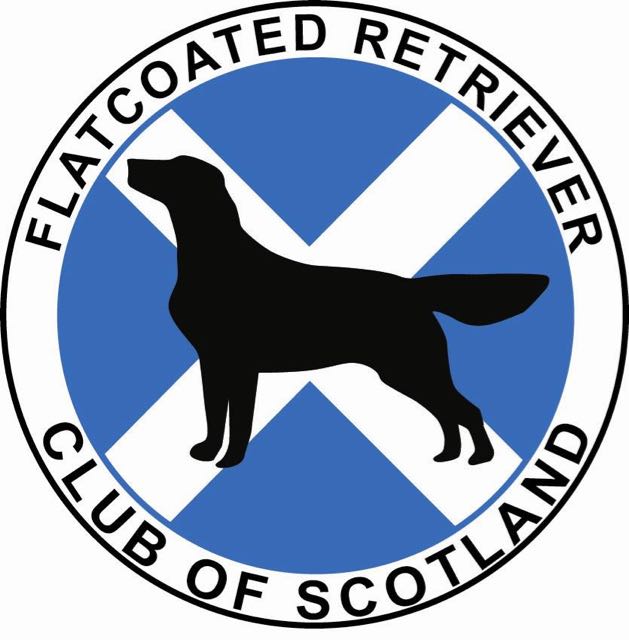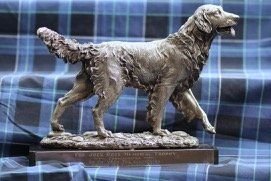Health Matters
Kennel Club Breed Health and Conservation Plan
This project was launched by the Kennel Club in September 2016 to help breeders and breed clubs make balanced breeding decisions for the future health of the breed. A plan has been developed for the Flatcoated Retriever and has taken a variety of factors into consideration such as known inherited conditions, any conformational concerns and population genetics.
The full Kennel Club report is available to read and download
<Here> . (October 2020)
Liz Branscombe (Flatcoated Retriever Breed Health Coordinator) has produced a summary action plan for the breed clubs to follow; and we welcome the support of all breed enthusiasts to complete this plan.
<Available Here> . (October 2020)
Many of the actions involve continued support and promotion of the health initiatives already in place, especially in relation to genetic diversity and the ‘popular sire effect’. See the articles on the Society website -
Health
Eye Screening Advice From The British Veterinary Association (BVA) / KC
Pectinate ligament dysplasia (PLD for short, also known as goniodysgenesis) is a condition that may lead to glaucoma.
In the light of research, the BVA have reviewed the advice on how often dogs should have a gonioscopy test which assesses your dogs' eyes for evidence of PLD . The reason for this is that ophthalmologists now know that there may be changes over time in these structures (and also in the drainage angle of the eye). Previously it was thought this did not happen, hence the test was only done once-in-a-lifetime. The recommendation is now to test once every three years.
We do not know how many dogs will go on to develop glaucoma, but we do know that glaucoma is a painful and blinding condition. The Flatcoated Retriever Club of Scotland support the BVA/KC recommendation to screen dogs every three years.
Please see the Flatcoated Retriever Society Goniodysgenesis article below for more about this, and a suggested breeding strategy from geneticist Aimee Llewellyn, in order to minimise the risk of breeding affected dogs.
The BVA Eye Panel Working Party agreed to pilot a grading scheme for Gonioscopy under the BVA/KC/ISDS Eye Scheme.
At the start of the project the KC health dept. stated,
"This pilot study aims to give potential breeders the best scientific advice about reducing/eliminating primary closed angle glaucoma (PCAG)/primary angle closure glaucoma (PACG) without compromising genetic diversity.
The pilot study started July 2017 and the Eye Panel Working Party will assess its progress in November 2017. There may be minor amendments during this interim stage if any new scientific evidence emerges.
Please note that while the Gonioscopy grading scheme is being piloted, the BVA will record the grades and the Kennel Club will continue to publish the results of Gonioscopy, as either 'Clinically unaffected' or 'Clinically affected' - as is done at present. The only change to the current arrangement is that owners will have access to the grading system proposed and agreed by the Eye Panel Working Party."
Update December 2017 :
The Flatcoated Retriever Society has published the following updates on the Heath Testing pages of the Society website,
BVA/KC/ISDS Eye Scheme Update Dec 2017
KC Gonioscopy: breeding advice
If you have any queries regarding these updates please contact Liz Branscombe, contact details on the Contacts page on the Society website.
British Veterinary Association (BVA) / KC Elbow Dysplasia Scheme
The Kennel Club would like to make you aware of the change to breeding advice for the
British Veterinary Association/Kennel Club Elbow Dysplasia scheme .
Originally, it was recommended that breeders select dogs with an elbow grade of 0 or 1, as a grade 1 was considered relatively mild at the time. However, graded radiographs have shown that the majority of dogs with grade 1 elbows display obvious signs of unilateral and bilateral arthritis.
Therefore, the revised breeding advice from the BVA is as follows:
‘It is strongly recommended that breeders wishing to reduce the risk of elbow dysplasia should select their breeding stock (both dogs and bitches) only from animals with an overall grade of 0. Dogs with elbow grades of 2 or 3 have marked osteoarthritis likely to be due to ED, with or without a visible primary lesion. Dogs with elbow grades of 1 show mild or early osteoarthritis which is also likely to be due to ED.’
The elbow grades of Kennel Club registered dogs under the BVA/KC Elbow Dysplasia scheme, along with other breed health information, can be seen via the
KC Advice for Existing Breeders.
For additional scheme information, please visit the BVA website.
Health Resources and Articles
The Society website contains many useful breed reports and health articles. Liz Branscombe, Chair and Breed Health Coordinator, was named as The Kennel Clubs' Breed Health Coordinator of the year (2016) and won the KC Breed Health Coordinator Award for 2019 at the International Canine Health Awards.
Visit FCRS Health
The Kennel Club is the largest organisation in the UK devoted to dog health, welfare, education and training. Its objective is to ensure that dogs live healthy, happy lives with responsible owners.
Visit Kennel Club Health Information
The BVA is the national representative body for the veterinary profession in the UK. They are the only UK veterinary association that looks after the interests of all vets in all disciplines. They are a not-for-profit organisation so any money that they make is reinvested to serve the veterinary profession.
Visit British Veterinary Association (BVA)

